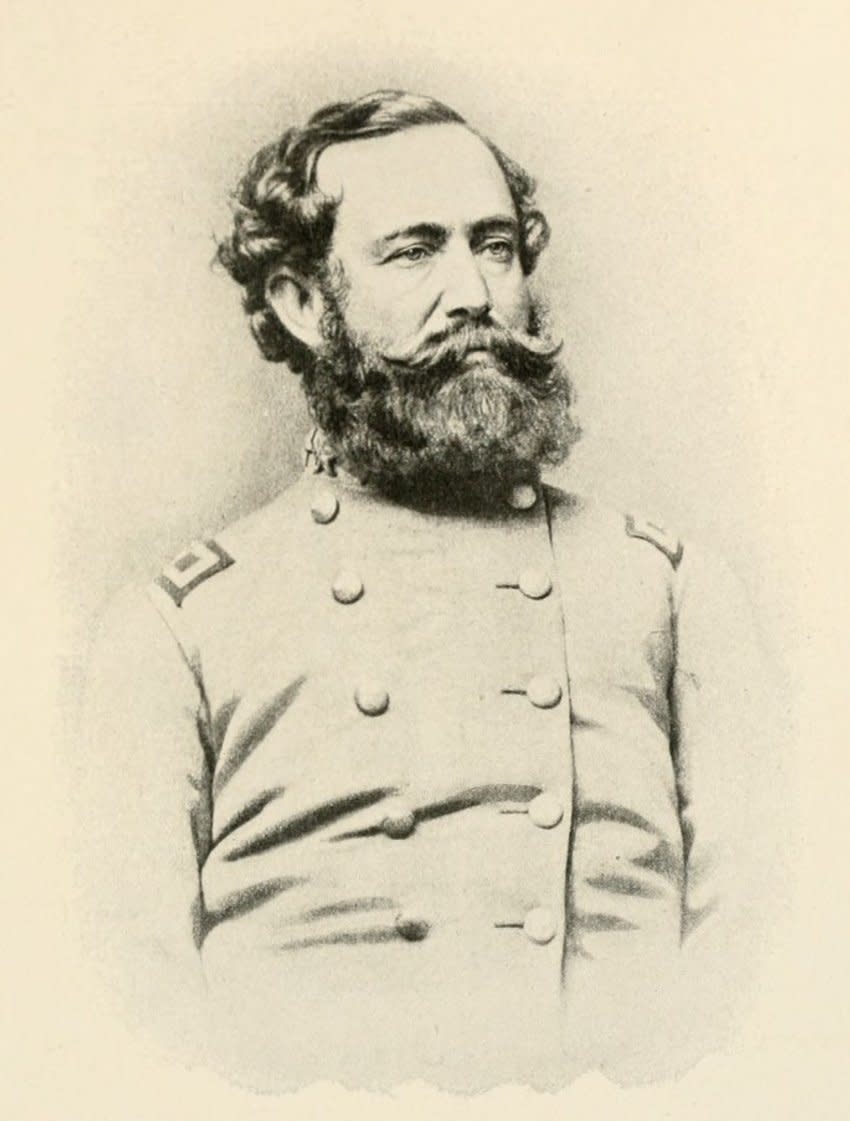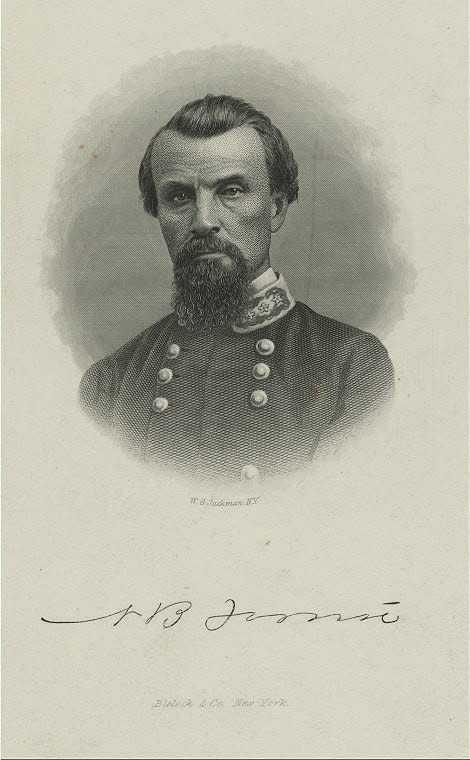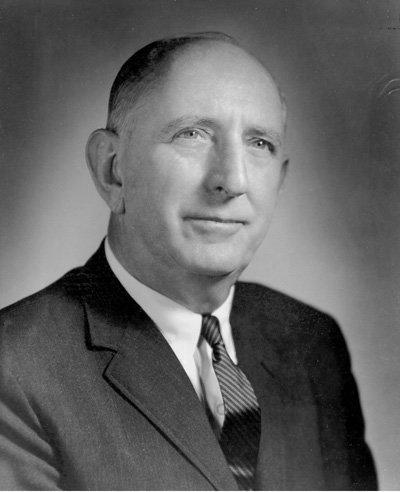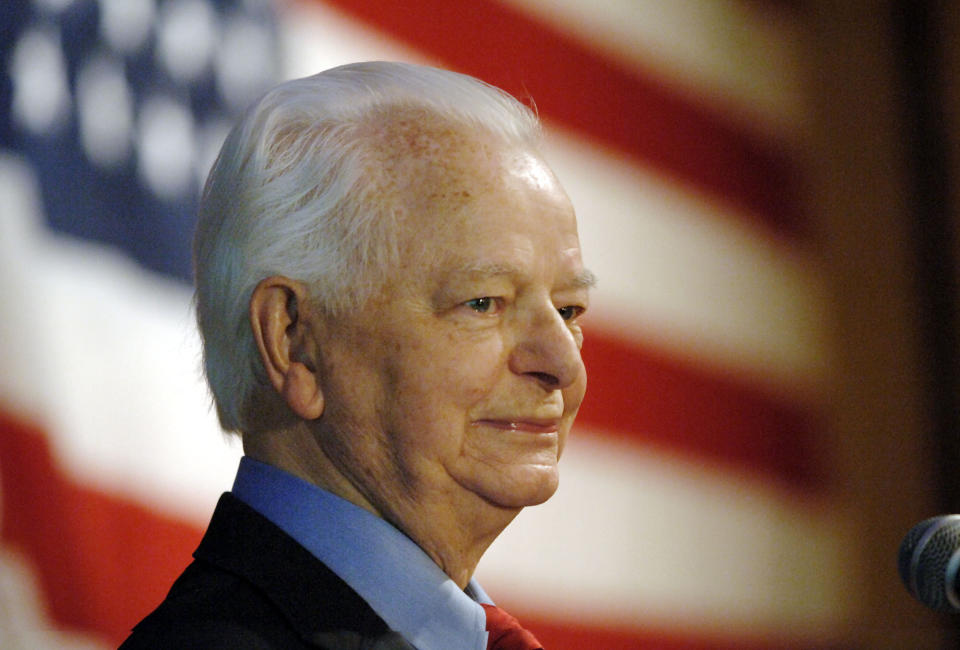Tucker Carlson Claims There's No White Supremacy Problem: 'This Is A Hoax'
Fox News host Tucker Carlson on Tuesday claimed there is no white supremacy problem in the United States and that the very notion of one is a hoax created by the media and the left.
“The whole thing is a lie,” said Carlson, who has routinely given airtime to white nationalist conspiracy theories and talking points. “It’s actually not a real problem in America.”
He added:
“This is a hoax, just like the Russia hoax. It’s a conspiracy theory used to divide the country and keep a hold on power. That’s exactly what’s going on.”
It’s not clear what Carlson meant by “Russia hoax” given the well-documented effort by Moscow to undermine U.S. elections. It’s been detailed by the U.S. intelligence community and spelled out in the report and testimony by special counsel Robert Mueller.
Carlson also cited his own experience as evidence that white supremacy is a hoax: He’s never met a white supremacist.
“I’ve lived here 50 years,” he said. “I’ve never met anybody, not one person, who ascribes to white supremacy. I don’t know a single person who thinks that’s a good idea. They’re making this up.”
Footage of Carlson’s comments was posted online by Media Matters.
While Carlson claims white supremacy is a hoax, one of his favorite guests has said otherwise by actually defending the white supremacists.
Mark Steyn, a regular on the show, last year defended white supremacists over undocumented immigrants.
“The white supremacists are American citizens,” Steyn told Carlson. “The illegal immigrants are people who shouldn’t be here.”
The Southern Poverty Law Center said earlier this year that there are now 1,020 documented hate groups in the United States, a jump of 30% since 2014. The organization said 148 of them are devoted to white supremacist ideology, an increase of 50%.
Also this year, the FBI said it had at least 850 open investigations into domestic terrorist groups, with about 40% related to race and/or religion.
Also on HuffPost
Wade Hampton III

Hampton, who was a Confederate cavalry leader during the Civil War, served as the governor of South Carolina from 1876 to 1879 and as a U.S. senator from 1879 to 1891. According to Encyclopedia Britannica, after being elected to office, Hampton "took the lead in South Carolina in the fight to restore white supremacy." When running for governor, some of his strongest supporters were members of the paramilitary group "Redshirts," who intimidated black voters through violence.
Charles Brantley Aycock
![Several education institutions bear the name of Charles Brantley Aycock, a former politician who held racist views. At least two schools in North Carolina are named after Aycock. They're located in <a href="http://aycock.gcsnc.com/pages/Aycock_Middle" target="_blank">Greensboro </a> and <a href="http://www.waynecountyschools.org/324" target="_blank">Pikeville</a>. <br> <br> Over the past year, a number of major institutions have renamed buildings that previously commemorated Aycock. In June 2014, Duke University voted to remove Aycock's <a href="http://www.washingtonpost.com/news/post-nation/wp/2014/06/17/this-duke-dorm-is-no-longer-named-after-a-white-supremacist-former-governor/" target="_blank">name from an undergraduate dorm</a>. East Carolina University <a href="http://www.newsobserver.com/news/local/education/article10882847.html" target="_blank">also made the same decision in February 2015</a>. UNC-Chapel Hill, <a href="http://museum.unc.edu/exhibits/names/aycock-residence-hall/" target="_blank">however, retains a residence hall named after Aycock</a>. <br> <br> Aycock served as governor of North Carolina from 1901 to 1905. However, prior to becoming governor, the politician helped lead a statewide campaign pushing for the ideals of white supremacy and the disenfranchisement of blacks. According to the News & Observer, <a href="http://www.newsobserver.com/2012/04/01/1972224/the-two-sides-of-aycock.html" target="_blank">Aycock was "elected in 1900 during a horrific white supremacist campaign</a> ... [that] led to the disenfranchisement of most black voters and the imposition of Jim Crow laws."](https://s.yimg.com/ny/api/res/1.2/YcN4MPS50q5hvJPXgK2Qjg--/YXBwaWQ9aGlnaGxhbmRlcjt3PTk2MA--/https://img.huffingtonpost.com/asset/5badf5ec2400005000964b71.jpg)
Over the past year, a number of major institutions have renamed buildings that previously commemorated Aycock. In June 2014, Duke University voted to remove Aycock's name from an undergraduate dorm. East Carolina University also made the same decision in February 2015. UNC-Chapel Hill, however, retains a residence hall named after Aycock.
Aycock served as governor of North Carolina from 1901 to 1905. However, prior to becoming governor, the politician helped lead a statewide campaign pushing for the ideals of white supremacy and the disenfranchisement of blacks. According to the News & Observer, Aycock was "elected in 1900 during a horrific white supremacist campaign ... [that] led to the disenfranchisement of most black voters and the imposition of Jim Crow laws."
Nathan Bedford Forrest

Duval School District decided to change the name of Nathan B. Forrest High School after more than 160,000 people signed a Change.org petition demanding the district take action. According to the petition, the "school got its name in 1959, when white civic leaders wanted to protest a court decision that called for integrating public schools."
Notably, at the end of his life, Forrest disavowed his involvement with the KKK.
Richard Brevard Russell Jr.

Russell served as the governor of Georgia from 1931 to 1933 and as a U.S. senator from 1933 to 1971. Russell was staunchly in favor of segregation and supported the ideals of white supremacy. According to the book Richard B. Russell, Jr., Senator from Georgia, Russell at one time stated that "it was an insult to the people of Georgia ... 'to even insinuate that I stand for political and social equality with the negro.'"
Robert C. Byrd

There is at least one high school named after Robert Byrd in Clarksburg, W.Va. There are also buildings and centers named after Byrd at academic institutions like Marshall University, West Virginia University, Shepherd University, the University of Charleston, and Wheeling Jesuit University.
Byrd started a local chapter of the KKK during the early 1940s and soon became its leader. While it is unclear how long Byrd was a member of the Klan, by the time he ran for Congress in 1952, he had publicly renounced his involvement with the organization. According to CNN, Byrd later called his involvement with the KKK "the most egregious mistake I've ever made."
While as a legislator Byrd initially filibustered against the Civil Rights Act of 1964, he later earned high marks from organizations like the NAACP.
Love HuffPost? Become a founding member of HuffPost Plus today.
This article originally appeared on HuffPost.

